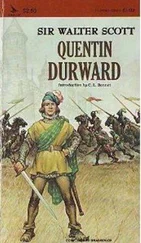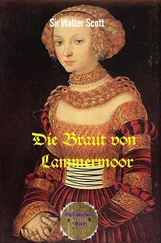Walter Scott - Letters on Demonology and Witchcraft
Здесь есть возможность читать онлайн «Walter Scott - Letters on Demonology and Witchcraft» весь текст электронной книги совершенно бесплатно (целиком полную версию без сокращений). В некоторых случаях можно слушать аудио, скачать через торрент в формате fb2 и присутствует краткое содержание. Жанр: История, на английском языке. Описание произведения, (предисловие) а так же отзывы посетителей доступны на портале библиотеки ЛибКат.
- Название:Letters on Demonology and Witchcraft
- Автор:
- Жанр:
- Год:неизвестен
- ISBN:нет данных
- Рейтинг книги:4 / 5. Голосов: 1
-
Избранное:Добавить в избранное
- Отзывы:
-
Ваша оценка:
- 80
- 1
- 2
- 3
- 4
- 5
Letters on Demonology and Witchcraft: краткое содержание, описание и аннотация
Предлагаем к чтению аннотацию, описание, краткое содержание или предисловие (зависит от того, что написал сам автор книги «Letters on Demonology and Witchcraft»). Если вы не нашли необходимую информацию о книге — напишите в комментариях, мы постараемся отыскать её.
Letters on Demonology and Witchcraft — читать онлайн бесплатно полную книгу (весь текст) целиком
Ниже представлен текст книги, разбитый по страницам. Система сохранения места последней прочитанной страницы, позволяет с удобством читать онлайн бесплатно книгу «Letters on Demonology and Witchcraft», без необходимости каждый раз заново искать на чём Вы остановились. Поставьте закладку, и сможете в любой момент перейти на страницу, на которой закончили чтение.
Интервал:
Закладка:
Leaving the further discussion of this dark and difficult question to those whose studies have qualified them to give judgment on so obscure a subject, it so far appears clear that the Witch of Endor, was not a being such as those believed in by our ancestors, who could transform themselves and others into the appearance of the lower animals, raise and allay tempests, frequent the company and join the revels of evil spirits, and, by their counsel and assistance, destroy human lives, and waste the fruits of the earth, or perform feats of such magnitude as to alter the face of Nature. The Witch of Endor was a mere fortune-teller, to whom, in despair of all aid or answer from the Almighty, the unfortunate King of Israel had recourse in his despair, and by whom, in some way or other, he obtained the awful certainty of his own defeat and death. She was liable, indeed, deservedly to the punishment of death for intruding herself upon the task of the real prophets, by whom the will of God was at that time regularly made known. But her existence and her crimes can go no length to prove the possibility that another class of witches, no otherwise resembling her than as called by the same name, either existed at a more recent period, or were liable to the same capital punishment, for a very different and much more doubtful class of offences, which, however odious, are nevertheless to be proved possible before they can be received as a criminal charge.
Whatever may be thought of other occasional expressions in the Old Testament, it cannot be said that, in any part of that sacred volume, a text occurs indicating the existence of a system of witchcraft, under the Jewish dispensation, in any respect similar to that against which the law-books of so many European nations have, till very lately, denounced punishment; far less under the Christian dispensation—a system under which the emancipation of the human race from the Levitical law was happily and miraculously perfected. This latter crime is supposed to infer a compact implying reverence and adoration on the part of the witch who comes under the fatal bond, and patronage, support, and assistance on the part of the diabolical patron. Indeed, in the four Gospels, the word, under any sense, does not occur; although, had the possibility of so enormous a sin been admitted, it was not likely to escape the warning censure of the Divine Person who came to take away the sins of the world. Saint Paul, indeed, mentions the sin of witchcraft, in a cursory manner, as superior in guilt to that of ingratitude; and in the offences of the flesh it is ranked immediately after idolatry, which juxtaposition inclines us to believe that the witchcraft mentioned by the Apostle must have been analogous to that of the Old Testament, and equivalent to resorting to the assistance of soothsayers, or similar forbidden arts, to acquire knowledge of toturity. Sorcerers are also joined with other criminals, in the Book of Revelations, as excluded from the city of God And with these occasional notices, which indicate that there was a transgression so called, but leave us ignorant of us exact nature, the writers upon witchcraft attempt to wring out of the New Testament proofs of a crime in itself so disgustingly improbable. Neither do the exploits of Elymas, called the Sorcerer, or Simon, called Magus or the Magician, entitle them to rank above the class of impostors who assumed a character to which they had no real title, and put their own mystical and ridiculous pretensions to supernatural power in competition with those who had been conferred on purpose to diffuse the gospel, and facilitate its reception by the exhibition of genuine miracles. It is clear that, from his presumptuous and profane proposal to acquire, by purchase, a portion of those powers which were directly derived from inspiration, Simon Magus displayed a degree of profane and brutal ignorance inconsistent with his possessing even the intelligence of a skilful impostor; and it is plain that a leagued vassal of hell—should we pronounce him such—would have better known his own rank and condition, compared to that of the apostles, than to have made such a fruitless and unavailing proposal, by which he could only expose his own impudence and ignorance.
With this observation we may conclude our brief remarks upon witchcraft , as the word occurs in the Scripture; and it now only remains to mention the nature of the demonology , which, as gathered from the sacred volumes, every Christian believer is bound to receive as a thing declared and proved to be true.
And in the first place, no man can read the Bible, or call himself a Christian, without believing that, during the course of time comprehended by the Divine writers, the Deity, to confirm the faith of the Jews, and to overcome and confound the pride of the heathens, wrought in the land many great miracles, using either good spirits, the instruments of his pleasure, or fallen angels, the permitted agents of such evil as it was his will should be inflicted upon, or suffered by, the children of men. This proposition comprehends, of course, the acknowledgment of the truth of miracles during this early period, by which the ordinary laws of nature were occasionally suspended, and recognises the existence in the spiritual world of the two grand divisions of angels and devils, severally exercising their powers according to the commission or permission of the Ruler of the universe.
Secondly, wise men have thought and argued that the idols of the heathen were actually fiends, or, rather, that these enemies of mankind had power to assume the shape and appearance of those feeble deities, and to give a certain degree of countenance to the faith of the worshippers, by working seeming miracles, and returning, by their priests or their oracles, responses which "palter'd in a double sense" with the deluded persons who consulted them. Most of the fathers of the Christian Church have intimated such an opinion. This doctrine has the advantage of affording, to a certain extent, a confirmation of many miracles related in pagan or classical history, which are thus ascribed to the agency of evil spirits. It corresponds also with the texts of Scripture which declare that the gods of the heathen are all devils and evil spirits; and the idols of Egypt are classed, as in Isaiah, chap. xix. ver. 2, with charmers, those who have familiar spirits, and with wizards. But whatever license it may be supposed was permitted to the evil spirits of that period—and although, undoubtedly, men owned the sway of deities who were, in fact, but personifications of certain evil passions of humanity, as, for example, in their sacrifices to Venus, to Bacchus, to Mars, &c., and therefore might be said, in one sense, to worship evil spirits—we cannot, in reason, suppose that every one, or the thousandth part of the innumerable idols worshipped among the heathen, was endowed with supernatural power; it is clear that the greater number fell under the description applied to them in another passage of Scripture, in which the part of the tree burned in the fire for domestic purposes is treated as of the same power and estimation as that carved into an image, and preferred for Gentile homage. This striking passage, in which the impotence of the senseless block, and the brutish ignorance of the worshipper, whose object of adoration is the work of his own hands, occurs in the 44th chapter of the prophecies of Isaiah, verse 10 et seq . The precise words of the text, as well as common sense, forbid us to believe that the images so constructed by common artisans became the habitation or resting-place of demons, or possessed any manifestation of strength or power, whether through demoniacal influence or otherwise. The whole system of doubt, delusion, and trick exhibited by the oracles, savours of the mean juggling of impostors, rather than the audacious intervention of demons. Whatever degree of power the false gods of heathendom, or devils in their name, might be permitted occasionally to exert, was unquestionably under the general restraint and limitation of providence; and though, on the one hand, we cannot deny the possibility of such permission being granted in cases unknown to us, it is certain, on the other, that the Scriptures mention no one specific instance of such influence expressly recommended to our belief.
Читать дальшеИнтервал:
Закладка:
Похожие книги на «Letters on Demonology and Witchcraft»
Представляем Вашему вниманию похожие книги на «Letters on Demonology and Witchcraft» списком для выбора. Мы отобрали схожую по названию и смыслу литературу в надежде предоставить читателям больше вариантов отыскать новые, интересные, ещё непрочитанные произведения.
Обсуждение, отзывы о книге «Letters on Demonology and Witchcraft» и просто собственные мнения читателей. Оставьте ваши комментарии, напишите, что Вы думаете о произведении, его смысле или главных героях. Укажите что конкретно понравилось, а что нет, и почему Вы так считаете.









